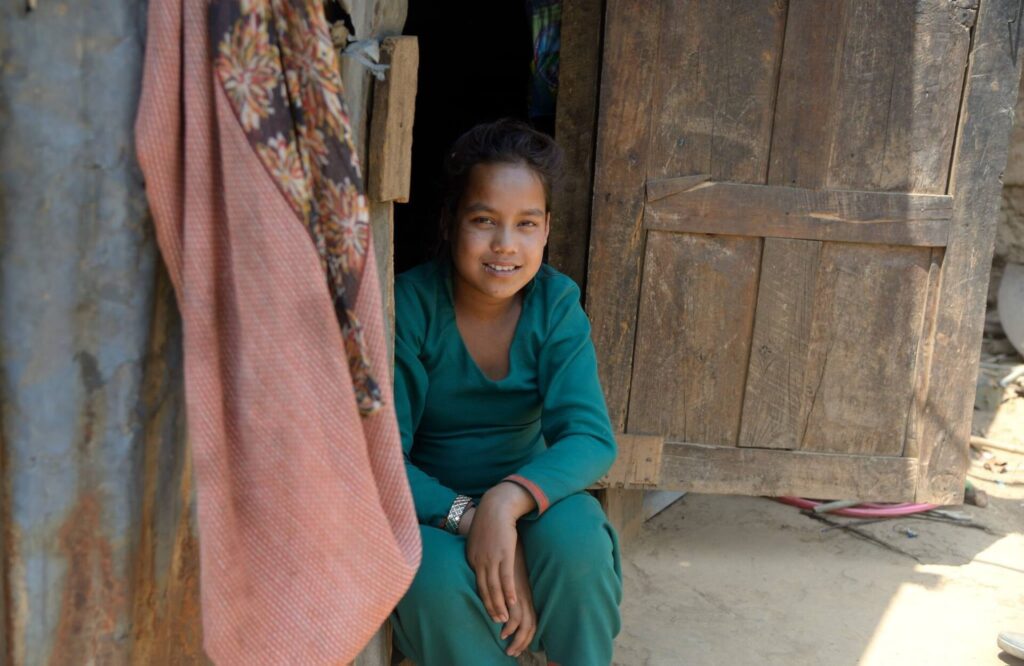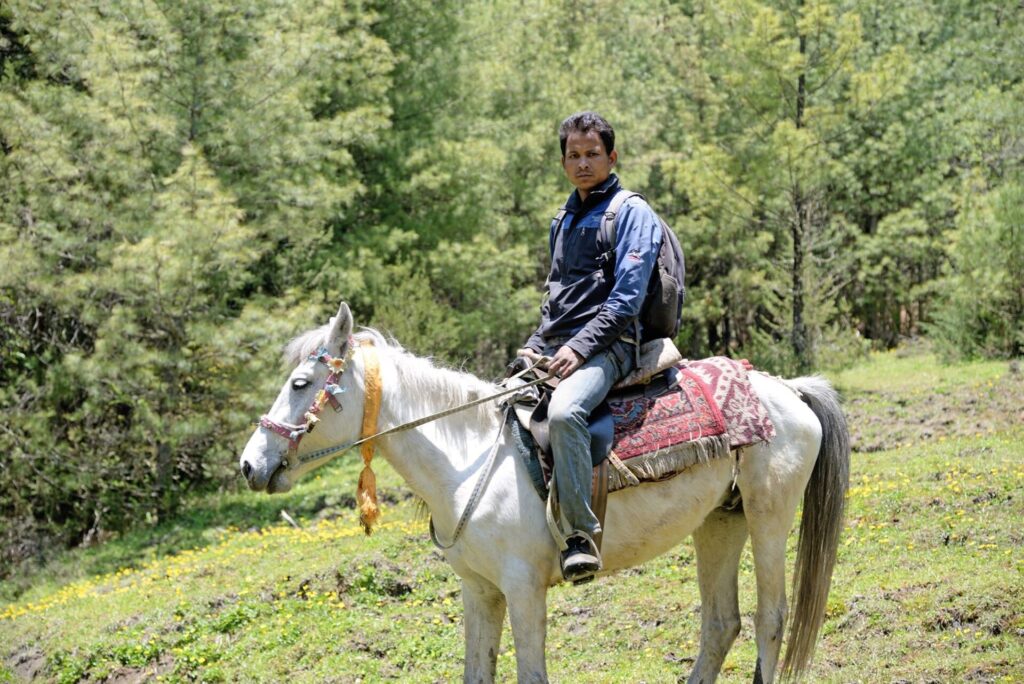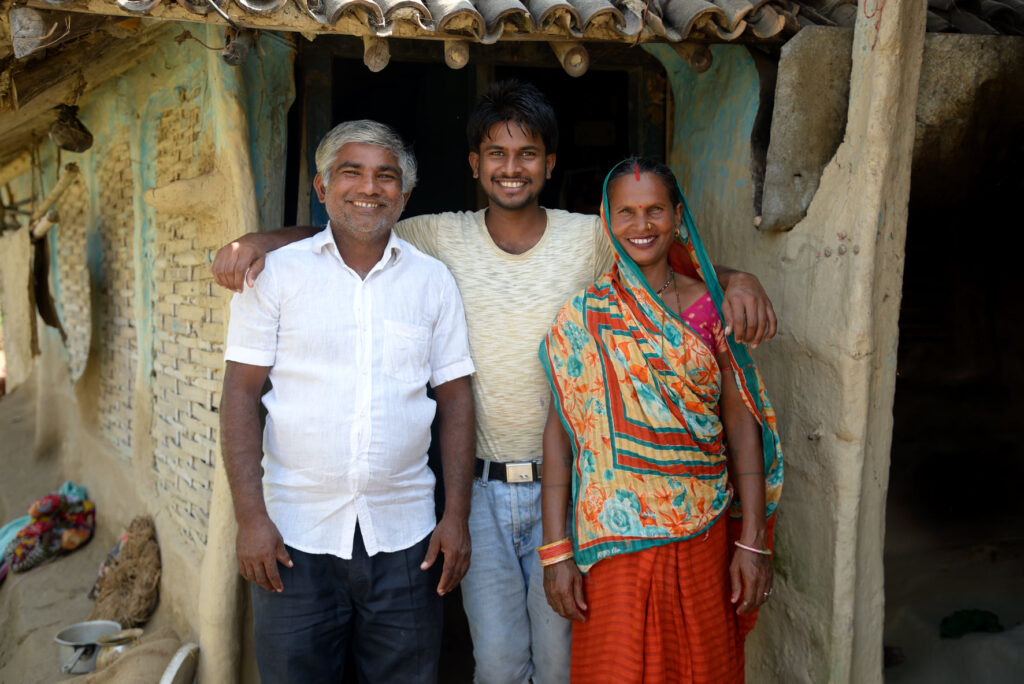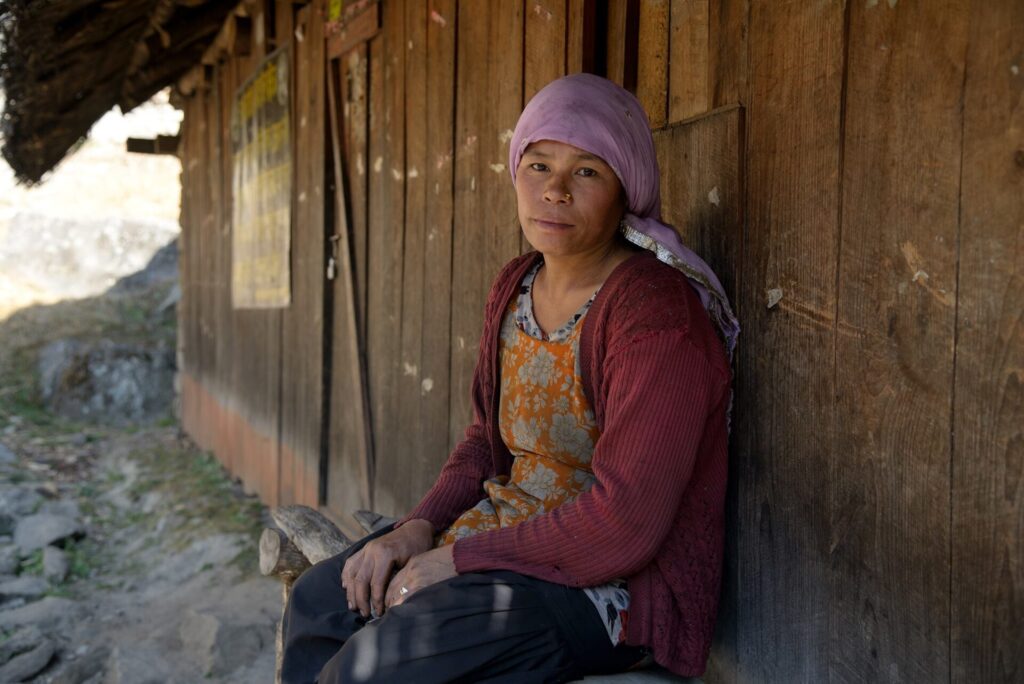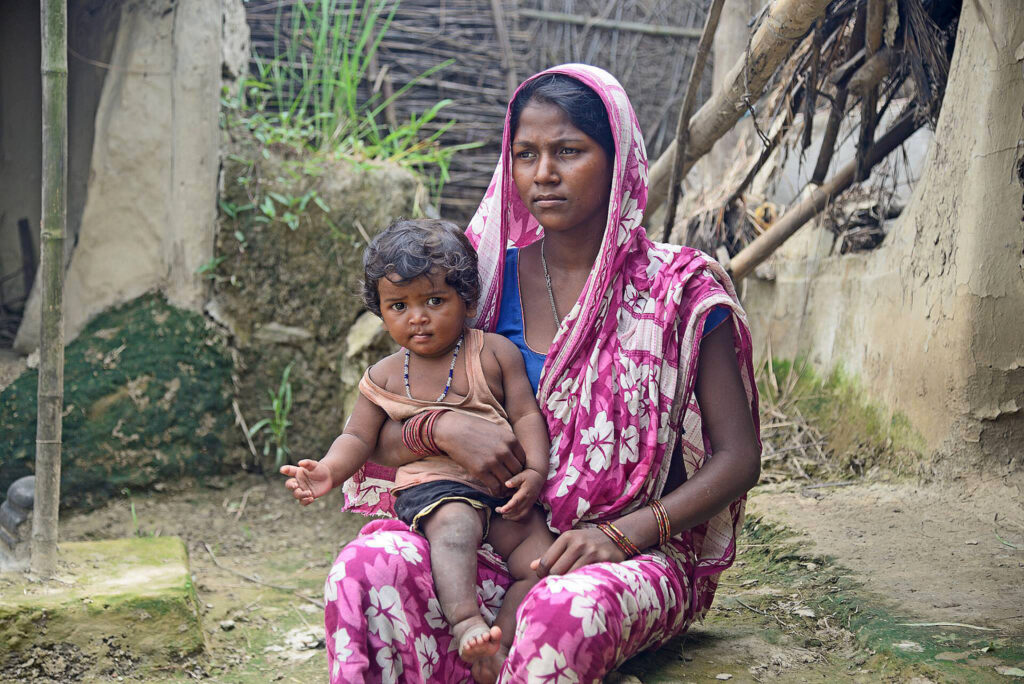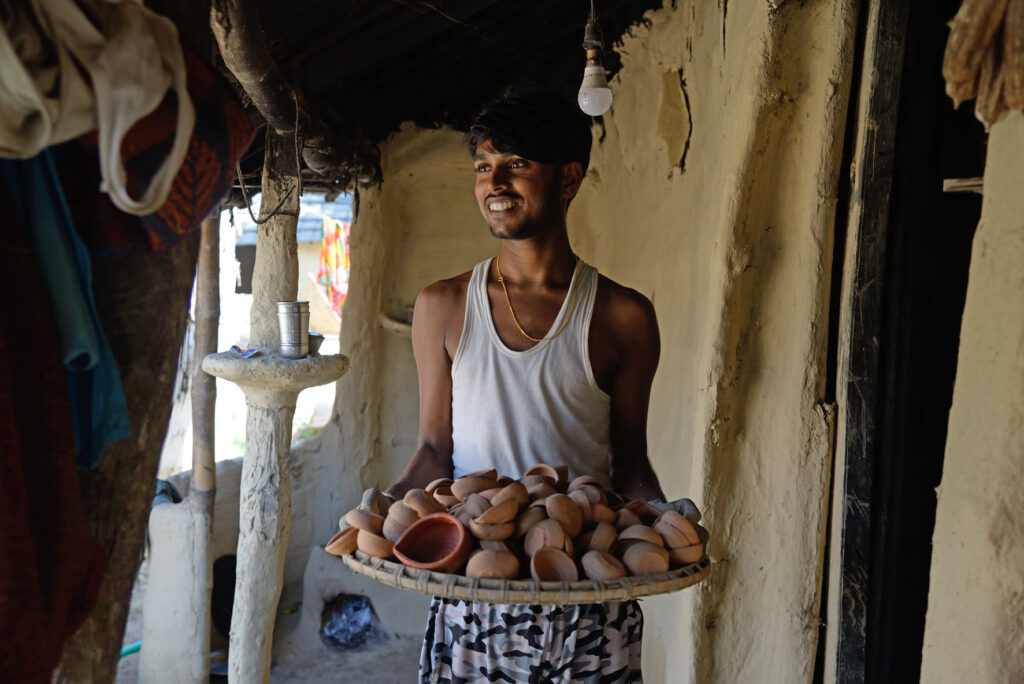
Mansari Tamang Rigu, Dolakha
“The rain dropped like stones on the tin roof. The wind would try to pluck out the nails that held it with the wooden planks. I just made sure I kept the fire steady. My brothers who had tailed me that day sat beside me. I covered him with an old blanket and waited. The rain did not stop. My eyes were tired and I thought of my mother who was at home with my other brother. I thought of my father who had gone with the Chauris to another mountain. I vowed I was not going to volunteer to spend the night in the Goth. I thought that I should have stayed warm at home. The rain kept hammering the roof and I do not know when I fell asleep. When I woke up the rain was not as heavy and the wind had stopped. The fire was out and my brother was still asleep. I woke him up and we came out of the Goth. There was debris everywhere. Many parts of the hills had slid down to the river. Our Goth had survived. We somehow maneuvered through the debris, careful not to fall, and reached home. But there was no home. Our house had flattened. I was 9 years old and my brother a little younger. We did not know what to do but wail. I frantically looked for my mother, screaming her name. There was no answer. As I made circles running and screaming, I saw her. She was trapped under the fallen roof of the house and a pile of heavy stones. I tried to pull her out but I could not. I called for help like I was dying. No one came. I tried again and again and again but I could not drag her out. Then I collapsed where I was standing but I could still hear my brother wailing nearby.
I do not know how much time had passed when the boys from the local high-school came for rescue. They shook me to wake me up. They dug my mother and my brother out. I saw that Mother’s arms were wrapped around my brother’s body. He was breathing. Mother was not. Mother had given her life to save her son. Father must have run down the mountain. He was back to us the next day. The men took mother to the forest and I never saw her after that. When Father returned from the forest, he hugged the three of us and cried for a brief moment. He said, “I am here, I am back. Do not lose heart.” After that day, Father did not build another house. For many years we lived in the Goth. Being the eldest daughter, I took care of my brothers. I tried not to make them feel that they did not have a mother. Father relied on me to take care of my brothers while he took care of the animals. I understood that and I did what any daughter would do.
Eventually, Father decided to move all of us to Lamabagar. And that is where I met him. He had become close after a few encounters. He had told me about his father who had died in the forest, his mother who had left the family, and his troubles. And I had told him about my mother and how she died that year of the flood. We wanted to get married. But I knew my father would not want me to leave the family. He had no help besides me. If I left, who would look after my brothers? Who would attend to the kitchen? But I was young and deeply in love. I did not want to lose the man I loved. I did not want to lose the new life he had promised me. So I eloped with him. Father did not talk to me after that. I could feel his hurt and his resentment towards my action. After a few months, I returned to my father to ask for his forgiveness. I told him, “Please forgive me father for I had made a mistake of abandoning you. But I love this man and without your blessing, my life will be incomplete.” He said, “Your mother left me and now you have gone. What will happen to this old man?” We both cried. Then, he said he forgave me. He asked that I visit him often.
I visit my father frequently. He has bought more Chauris and my eldest brother helps him. My youngest brother goes to school. The man has gained his strength back. My children are the happiest to see their grandfather. Today, we all have accepted our present. We have no choice over the matter. It is what it is. Many fall off the cliffs, many are buried in the landslides, many are washed away in the flood. These stories are everywhere in the hills and mountains. But we continue living with our stories, with our aches. Under these mountains and hills. For our children. Always hopeful.”




